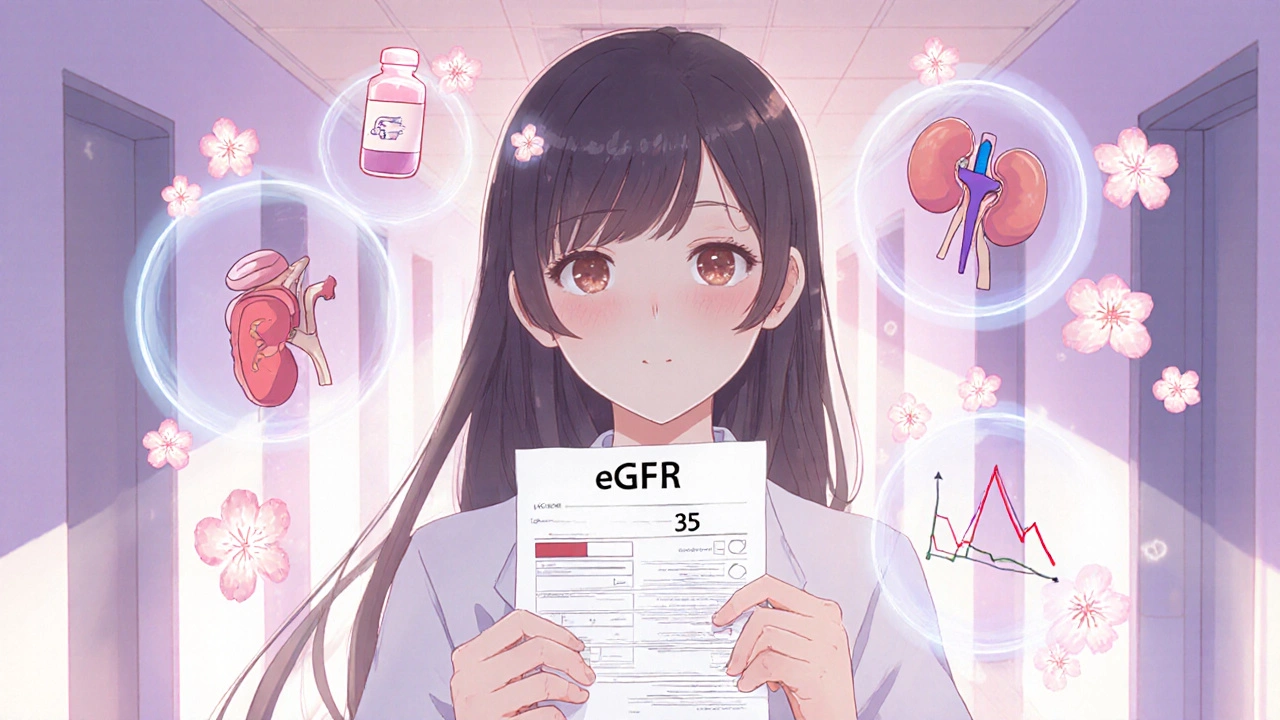Diabetes and CKD: How They Connect and What You Need to Know
When you have diabetes, a condition where the body can’t properly use or make insulin, leading to high blood sugar. Also known as high blood glucose, it doesn’t just affect your energy or thirst—it quietly damages organs, especially your kidneys. Over time, uncontrolled sugar levels force your kidneys to filter too much blood, straining their tiny filters. This is how chronic kidney disease, a gradual loss of kidney function over months or years. Also known as CKD, it often starts without symptoms but can lead to dialysis or transplant if ignored. About 1 in 3 adults with diabetes will develop some level of kidney damage. It’s not a guess—it’s a well-documented link backed by decades of clinical data.
Diabetes and CKD don’t just coexist—they feed each other. High blood sugar causes inflammation and scarring in the kidney’s filtering units, called glomeruli. At the same time, damaged kidneys struggle to regulate blood pressure and remove waste, making it harder to control sugar levels. It’s a cycle. Many people don’t realize their kidneys are failing until it’s advanced because there’s no pain, no obvious warning. But early signs like foamy urine, swelling in the ankles, fatigue, or needing to pee more at night are red flags. Testing your urine for protein and your blood for creatinine can catch it early. And if you’re on meds like ACE inhibitors or SGLT2 inhibitors, that’s not random—it’s targeted protection.
It’s not just about pills. Managing diabetes and CKD means daily choices: watching carbs, staying hydrated, avoiding NSAIDs like ibuprofen, and keeping blood pressure under 130/80. Even small wins—like losing 5% of your body weight or walking 30 minutes a day—can slow kidney decline. You don’t need to be perfect. You just need to be consistent. And you’re not alone. Millions are managing both conditions successfully by pairing medical care with smart habits.
Below, you’ll find real, practical guides on how medications interact with your kidneys, how to spot hidden risks in common drugs, and what alternatives exist when standard treatments aren’t enough. From understanding how mineral supplements affect kidney function to knowing when to question a prescription, these posts give you the tools to take control—not just react.

Chronic Kidney Disease and Metformin or SGLT2 Inhibitors: Dosing and Safety
Updated 2025 guidelines on metformin and SGLT2 inhibitor dosing for chronic kidney disease. Learn safe thresholds, side effects, combination use, and monitoring strategies for diabetes and CKD.
